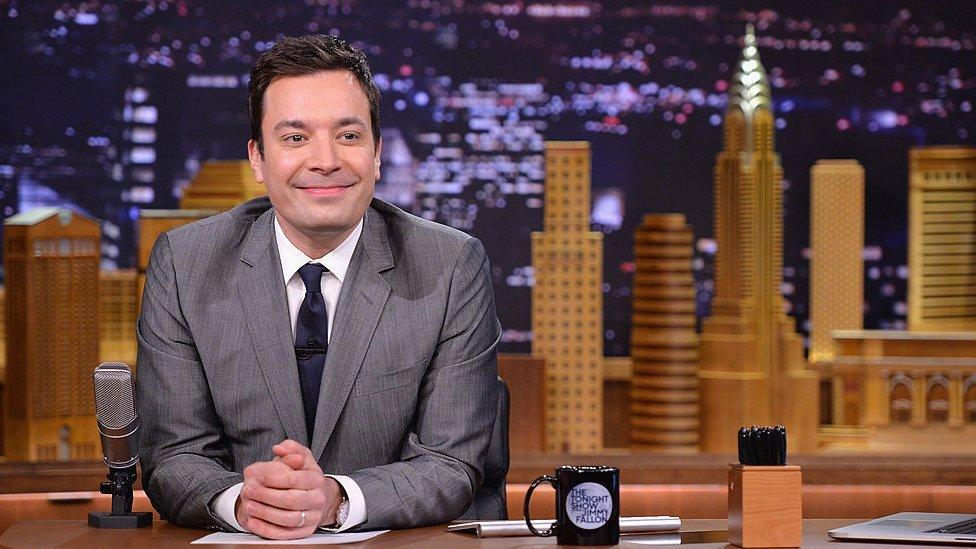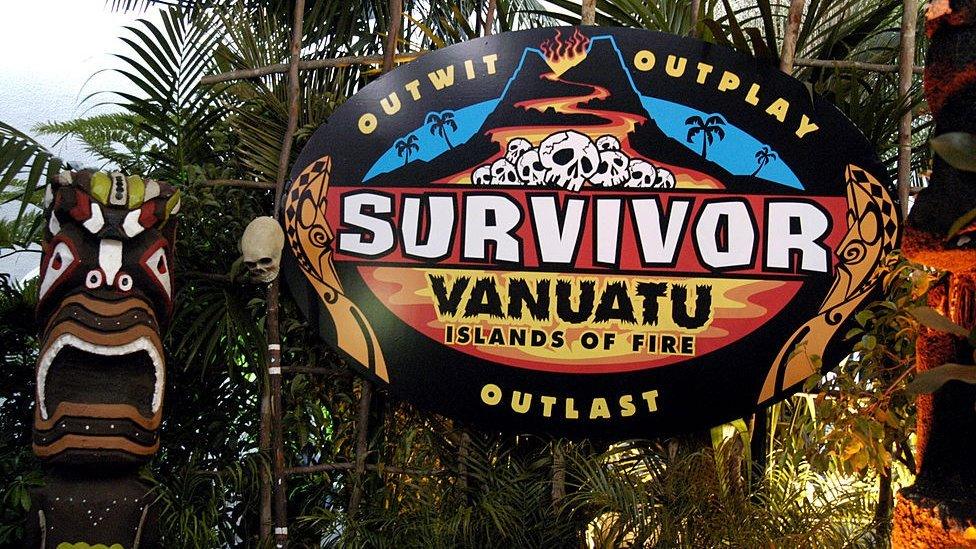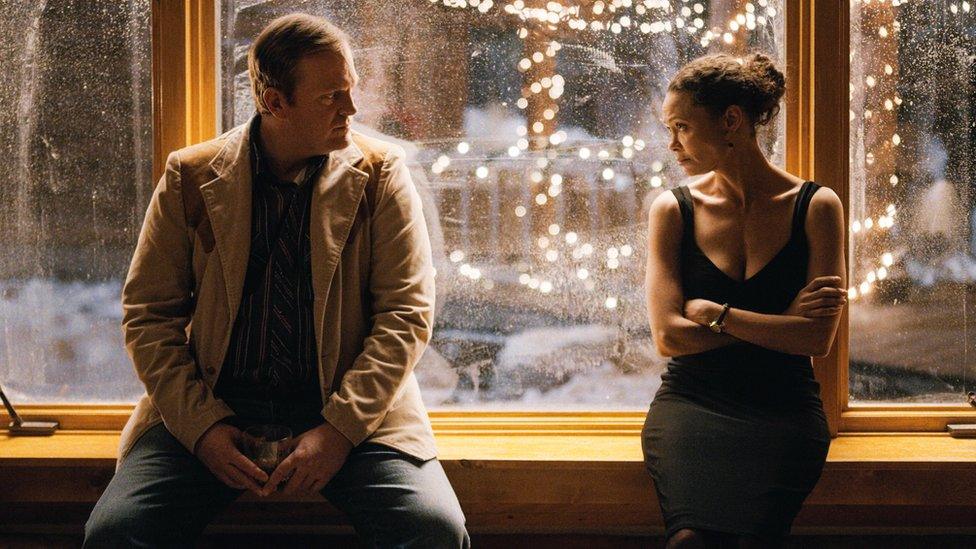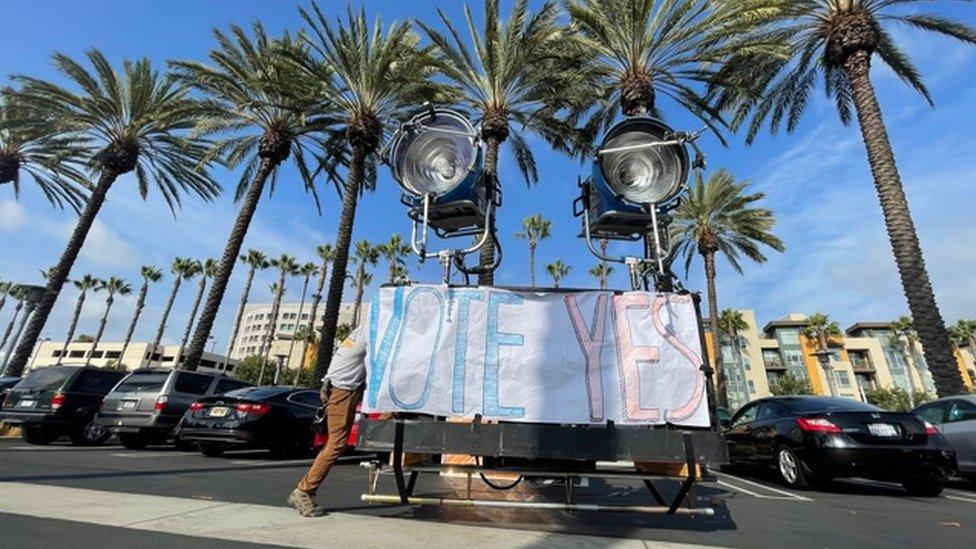How a Hollywood strike could affect your favourite TV shows
- Published

Late night TV might be the first to go if there's a strike
If Hollywood writers go on strike next week, some of your favourite shows may not survive.
With a 1 May deadline for a deal with the union approaching, a strike could happen as early as next week, with writers and their supporters picketing outside the studios' gates.
The biggest issue is how writers are paid in the new streaming economy, with many reporting lower wages as digital platforms have upended traditional television and film productions, says the Writers Guild of America, the union representing television and film writers.
"These are the storytellers that entertain the whole world. They need the stability of the compensation we are seeking to maintain a career," Charles Slocum, an Assistant Executive Director with the Writers Guild, told the BBC.
If a strike does happen, late night TV in the US will be the first visible sign. Without comedy writers to poke fun at the day's news - shows like Saturday Night Live and Last Week Tonight With John Oliver will go off air.
Some movies and TV shows could continue filming if scripts are already written, but some will shut down because some actors, directors and set workers will refuse to cross picket lines.
"This is a shared fight and Teamsters do not cross picket lines," the Teamsters union, which represents workers who provide transport on film and TV sets, said in a statement.
"These multi-billion-dollar corporations - including Amazon, Netflix, Disney, and Apple - invest in highly paid executives and lavish productions. They can afford to share the wealth with the writers who create the content we all watch."
The last writers' strike in 2007-2008 lasted 100 days and cost the California economy $2bn (£1.6bn), leading to many cancelled or delayed shows. Some have also credited it with boosting the proliferation of reality TV.
Back then, many daytime soap operas stayed on air with non-union writers. This time, the Writers Guild has warned writers that they would be barred from future membership if they break the strike.

The last time Hollywood writers went on strike, reality TV got a boost
Both the Writers Guild and the Alliance of Motion Picture and Television Producers (AMPTP) say their goal is to avoid a strike, like they did in 2017, the last time a contract was renegotiated.
But negotiations this time around have not been as smooth, and earlier this month 11,500 Writers Guild members voted overwhelmingly to authorise a strike if a contract could not be agreed.
The AMPTP would not agree to an interview, but in a statement they urged "reasonable compromises" without specifying any particular sticking points.
At the heart of the issue is how writers are paid in the era of streaming.
In the old days of broadcast, writers would be hired for a 22-episode season of television and would be paid - often handsomely - upfront, and then also receive residual paychecks when shows were rerun.
But Hollywood's business model has been completely disrupted by streaming, and now writers complain of being asked to provide weeks or months of free rewrites of scripts. They also complain that streamers have cut way down on the number of episodes ordered per season - sometimes just six-to-eight episodes. That makes it harder to get sustained work throughout the year, they say.
"I just wrote on a show and I can't eat," said writer Brandon Hines. "I rely on government assistance."
At 37, Hines is packing up his apartment in New York and moving back in with his family in Atlanta because, he says, he can't afford to live as a writer in New York anymore.
Another issue in the contract negotiations is the role of AI in script-writing. Writers want assurances that humans will still get writing work and writing credit as artificial intelligence emerges at a fast pace.
"A chatbot can't run a show," said writer Niceole Levy.
While the rise of chatbots has received much media attention, Hollywood writers say the bigger issue is finding a way for writers to make a sustainable living.
Ms Levy, who has been in the industry for a decade, worries about writers coming up in the industry.
"I don't worry for myself - it took me 10 years - but I'm in. They will have to drag me out screaming and yelling if they want to get rid of me."
Related topics
- Published27 January 2022

- Published4 October 2021
